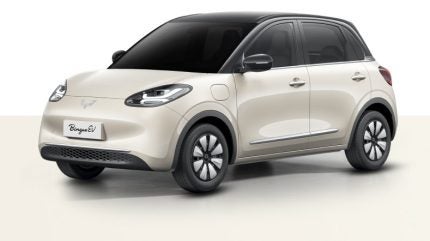
New vehicle sales in Indonesia fell 19% to 70,657 units in February 2024 from 86,954 units a year earlier, according to member wholesale data compiled by local automotive industry association Gaikindo.
This was the eighth consecutive month of decline following a strong two year rebound from the pandemic low. The central bank’s interest rate hikes in the last eighteen months, from 3.5% to 6%, have dampened consumer demand particularly for large purchases. Economic growth in the country remained sluggish at around 5% in the fourth quarter of 2023 with slowing private consumption and investment offset by a pick up in exports and government spending compared with the previous quarter.

Discover B2B Marketing That Performs
Combine business intelligence and editorial excellence to reach engaged professionals across 36 leading media platforms.
In the first two months of the year, sales were down 23% to 140,274 units from 181,077 with passenger vehicle volume falling 16% to 112,264 units while commercial vehicle sales plunged 41% to 28,010.
BEV sales reached just 3,506 units year to date (YTD). Most were Wuling models with the small Bingguo by far the best seller with 2,305 deliveries.
Toyota sales fell 21% to 44,513 units YTD while Daihatsu deliveries were down 15% at 29,451, Honda 17,494 (-42%), Mitsubishi Motors 12,956 (-13%) and Suzuki 11,131 (-21%).
Vehicle production fell 20% to 204,921 units in this period while exports of assembled vehicles dropped 24% to 67,795.
The government extended sales tax exemption for BEVs with a minimum 40% local content until the end of 2024 to help drive up local demand and attract inward investment. It is encouraging purchases of BEVs by government departments and is also pushing for the development of charging networks, targeting 2m in use by 2030.
China’s Hozon, Seres, SAIC Motor and Chery have entered the BEV market in the last six months while Vietnamese automaker VinFast unveiled a number of models at last month’s motor show. Other vehicle manufacturers selling BEVs are Hyundai, Toyota, BMW and Mercedes-Benz.
Last month Hyundai said it would produce a new BEV later this year using batteries produced at its local joint venture plant with LG Energy Solution.






